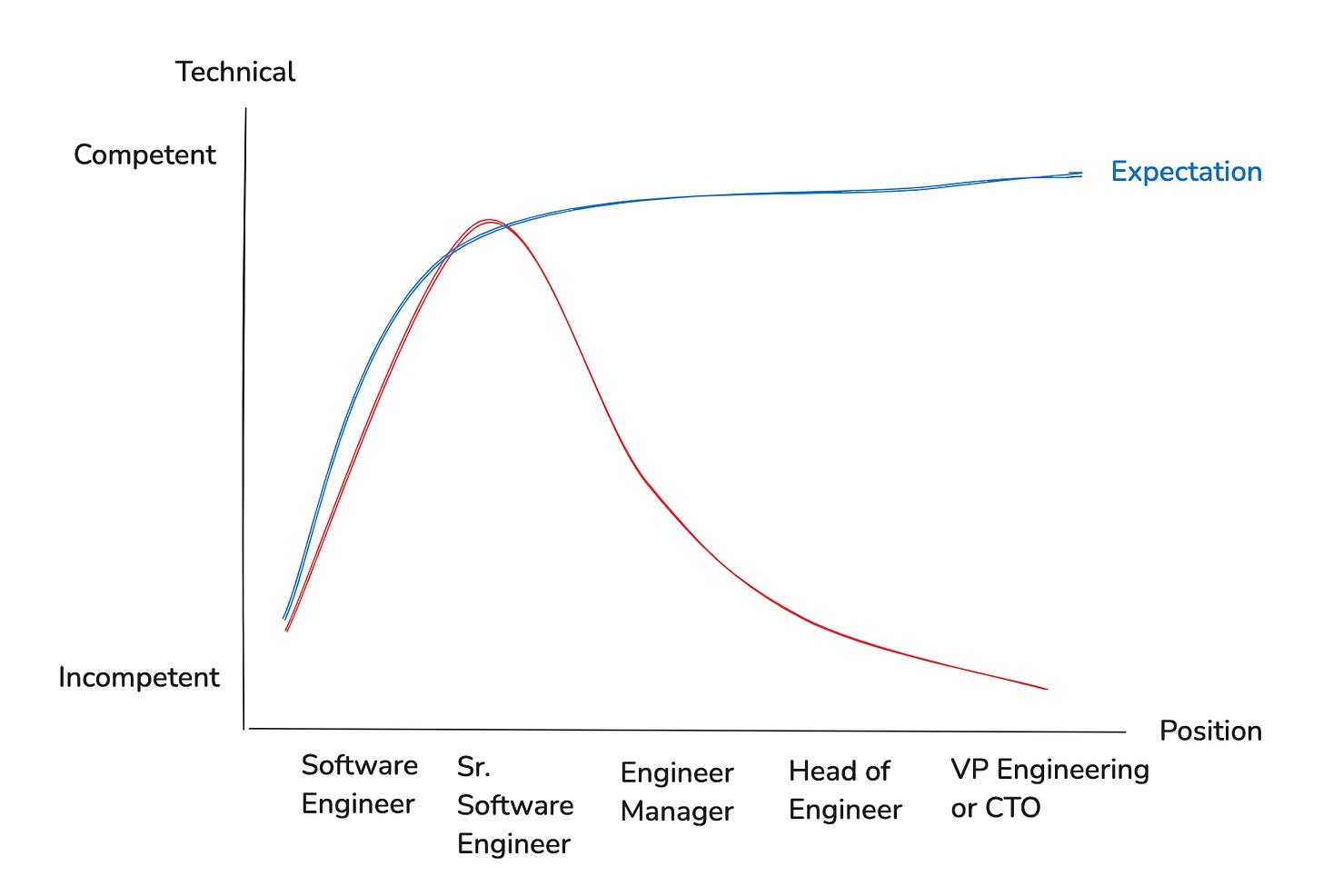Tech Leaders Should Stay Technical
Here’s why tech leaders should stay up-to-date with code and technology, and how to remain technical as your career grows.
Welcome to Coderbased, a software engineering newsletter that helps you to become hands on tech leader. Every week we write about system design, leadership, software engineering mindset or tips to become better Software Engineer.
Before we start, kindly to subscribe, follow me on Linkedin, Twitter and share this content to your friends. Enjoy.
When I meet technical leaders (such as Heads of Engineering, Engineering Managers or even VP of Engineering) who aren’t technical—who don’t code or understand the technical aspects—I always wonder:
“How did they rise to that position?”
As you advance in a company, especially on the managerial path, you take on responsibilities beyond just writing code. These can include meeting with stakeholders, developing strategies, setting KPIs, and exploring business opportunities.
However, with technology evolving rapidly, if you don’t keep up, you risk losing your technical skills.
Why should technical leaders stay technical?
In my view, it’s essential for tech leaders to remain technical. Here’s why:
Credibility
No software engineer wants a leader who can’t code or doesn’t understand the technical side. Staying technical allows you to empathize with your team and communicate in their language, improving collaboration and earning respect.
On the flip side, a lack of technical knowledge can lead to miscommunication and poor decision-making. You might even be misled—for example, your team could exaggerate the effort or timeline for a project.
Full Control
A tech leader’s top responsibility is hiring or promoting the right people for the right roles. When you’re technical, it’s easier to identify strong engineers, and you won’t feel anxious when someone leaves.
You’re also less reliant on others. For instance, when a critical error arises, you can contribute your insights rather than just waiting and hoping someone else will fix it.
Ultimately, this speeds up development, fosters innovation, and improves troubleshooting.
Empowering the Team
Technical leaders who stay technical are better at empowering their teams. They are seen as leaders, not just bosses. When you set realistic expectations for your team, you become a source of support rather than a burden.
I’ve seen many non-technical leaders assume that certain tasks or projects are easy when they are actually quite difficult—or even impossible. This disconnect leads to frustration and makes them a hindrance instead of a help.
More Impact
Leaders who lose their technical skills often shift their focus to project or people management. I’ve seen this happen frequently, especially at the middle-management level, like Engineering Managers, who end up acting as mere messengers. They can't defend their team with solid technical reasoning, which limits their impact. In the end, they just become another layer, pushing initiatives downward without adding real value.
I firmly believe that strong leadership requires a balance between top-down and bottom-up decision-making. Leaders need to understand both the technical and managerial sides to make a real difference.
P.S. This reminds me of a viral article from last year titled “The Death of Middle Management.” Is this one of the reasons why?
How to Stay Technical as a Leader
Staying technical doesn’t mean micromanaging or doing your team's work. It means ensuring that your skills stay sharp. Here are a few tips on how to do that:
Attend architecture or high-level design meetings: This keeps you informed about how your company’s systems work and ensures you’re continuously learning.
Set aside research time: As you move higher in your career, dedicate more time to researching technical topics, not just attending meetings. Research allows you to discover new opportunities, whether by introducing new technology or exploring new solutions. Personal projects can also serve as valuable research.
Write technical blogs or newsletters: Sharing your knowledge is a great way to reinforce your technical skills. Writing forces you to review what you know and may even inspire further research.
Delegate and establish SOPs: If you’re pressed for time, consider reviewing which tasks you can delegate or automate with standard operating procedures.
Do you have any other ideas for how technical leaders can stay technical?
That’s all for today. Thank you for reading today's newsletter! If you find it valuable, don’t forget to:





